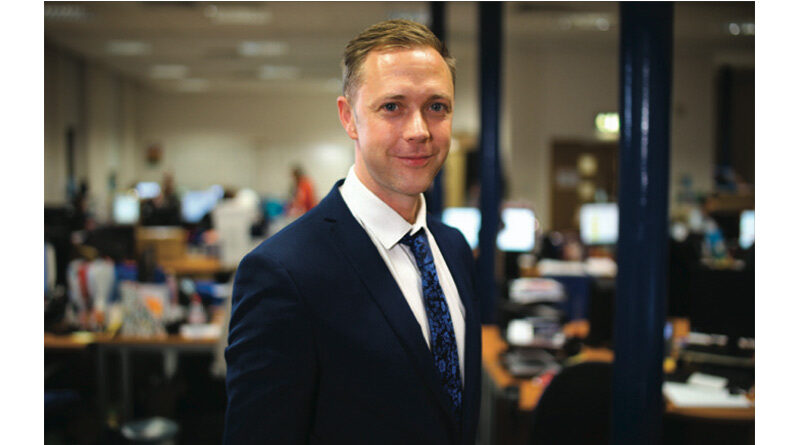Saving the Care Sector in a Post-Coronavirus World
By Chris Pritchard, Director of Healthcare at Search Consultancy (www.search.co.uk)
It’s probably fair to say that the work done within the care sector is often taken for granted. For those of us who aren’t reliant or even know anyone who is reliant on care support, we go about our daily business assuming that those who require such services are getting them, some- where, by someone. Then COVID-19 happened, and a sector which rarely makes headlines was suddenly thrust under the spotlight.
I have seen first-hand the challenges the care sector has endured throughout the pandemic and know of the challenges that still lie ahead.
THE BOOT GOES IN SO EASILY
To say that the care sector is one of the most altruistic outside of the charitable sector, it is remarkable how readily it is attacked. Every single day, hundreds of thousands of care workers provide crucial support to the most vulnerable in our society, allowing them to live with a level of comfort and dignity that otherwise simply would not be possible. Rarely, are these efforts recognised publicly.
In the weeks leading up to lockdown, when the scale of the coronavirus threat heading towards us wasn’t yet clear, I was on the judging panel for the British Carer Awards – an initiative to address this lack of recognition. It was an occasion marred by the Home Secretary’s announcement on that very day, that Britain’s new migration policy post- Brexit would deprioritise what she referred to as “low-skilled workers”. A bracket care workers were bundled into.
Over a day when we had gathered as a collective to celebrate carers, their skills, their hard work, and their incredible dedication, a shadow was cast. The positive noises we were trying to make were drowned out by a central government statement writing off those we were champi- oning as being nothing more than “low skilled”.
THE REALITY OF CARE WORK
The only people that would ever describe care work as “low-skilled” are those that have never done it. It is a role that demands the worker be proficient in a range of areas, many which transcend the perfunctory tasks of cooking and cleaning. They must manage patients with a range of issues, some which affect them physically, others mentally. It is com- mon for carers to be assigned to individuals whose specific needs make them prone to violence.
They must also provide emotional support. Many patients are in predicaments they do not wish to be in and struggle as a result. Carers must be ready to go from providing a bed bath to providing counsel in an instant. It is a role which thus requires a particular mix of altruism, emotional intelligence, manual deftness, resilience, and commitment. It is a role that most of us could not hack and to describe it as “low-skilled” is a gross insult.
CARE WORK AS A CAREER
Amongst the various misconceptions about care work, is the belief many hold that it is a job with no prospects, that workers are locked in a cycle of servitude from which the profession itself offers no opportunity for training or progression. This is simply not the case.
The professional expectations of care workers are extremely high and there is a need for them to posses a great degree of knowledge across a range of disciplines. Though it’s true that many carers remain in front- line roles, this is usually down to choice. Others use their frontline expe- rience to build portfolios for more senior positions. Across the sector there are stories that are rarely told of CEOs and Directors of organisa- tions who started their careers in entry level care roles.
THE ROAD AHEAD
These are amongst the most testing times the care sector has ever faced. The pressures on care workers have reached heights that are not reflective of normal times, pressures that are exacerbated by stories played out in the media which rarely paint the care work in a positive light. And, for a sector that already struggles with high staff turnover, none of this is conducive to building a ready, enthusiastic, and commit- ted workforce.
However, there is always hope. As a vocational career, care work will always attract exceptional people, the task ahead is for all of us – socie- ty as a whole – to reframe the dialogue surrounding it. Documentaries and news items covering isolated incidents of negligence and abuse are neither representative nor helpful to a sector that is overwhelmingly professional and deeply appreciated by its patients and their families.
Scare stories around Brexit and the imminent shortage of workers are also not only unhelpful but are untrue as most migrant carers come from outside of the European Union. Although some of the language in the public domain regarding immigrant workers does nothing for either morale or recruitment quotas.
The need to find, prepare, and motivate people to enter into and stay within the care sector also transcends conversations around employ- ment rates and the wider economy. It’s about deciding who we are as a nation. At the height of the pandemic, whole streets in villages, towns and cities across the country were moved to step outside their homes every week and applaud the efforts of those on the frontline, including carers. That energy and momentum must be maintained.
We are all only a permutation of unfortunate events away from need- ing carers of our own, helping to strengthen the sector is incumbent on us all.

